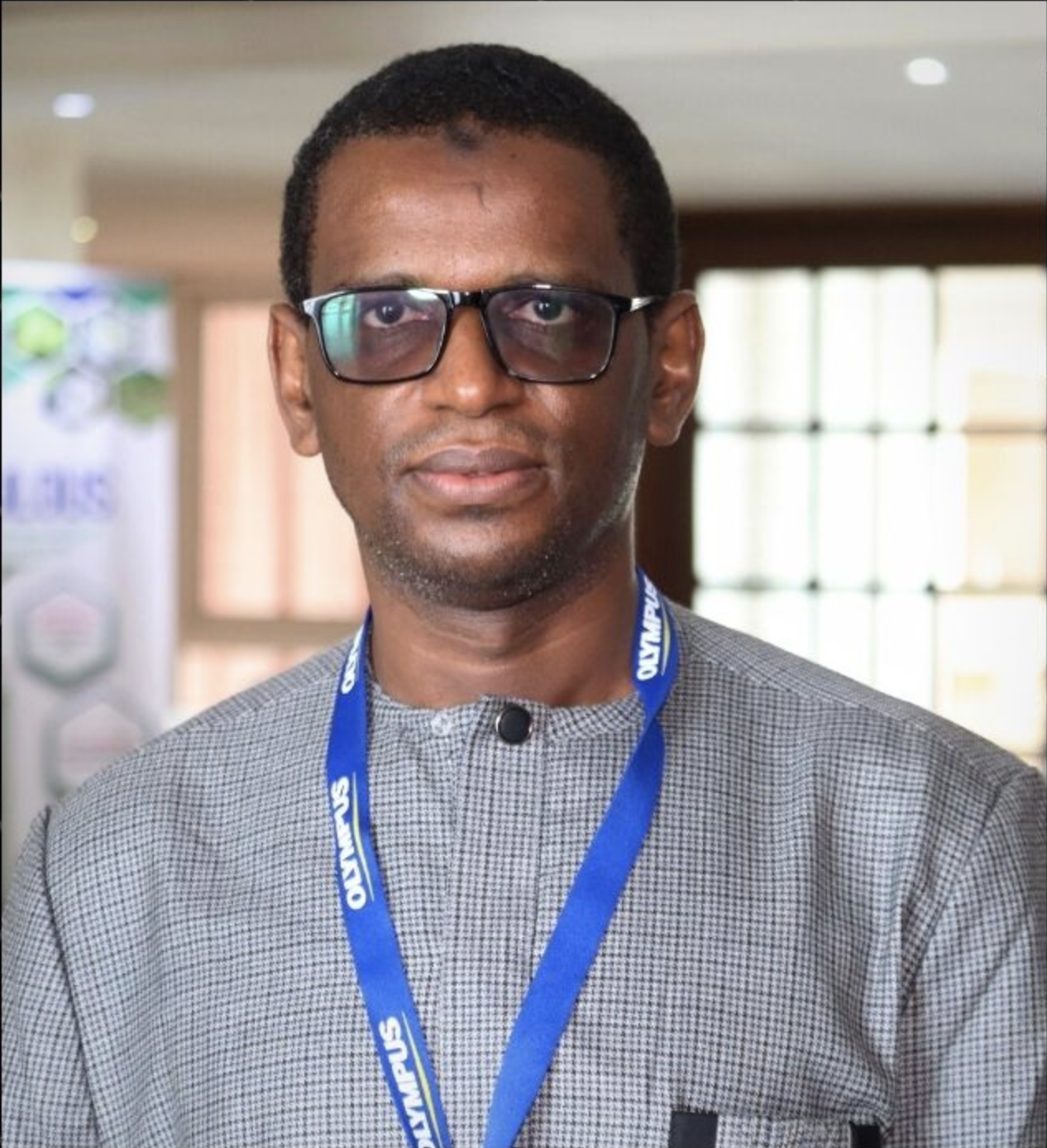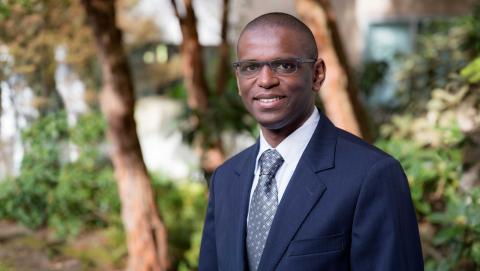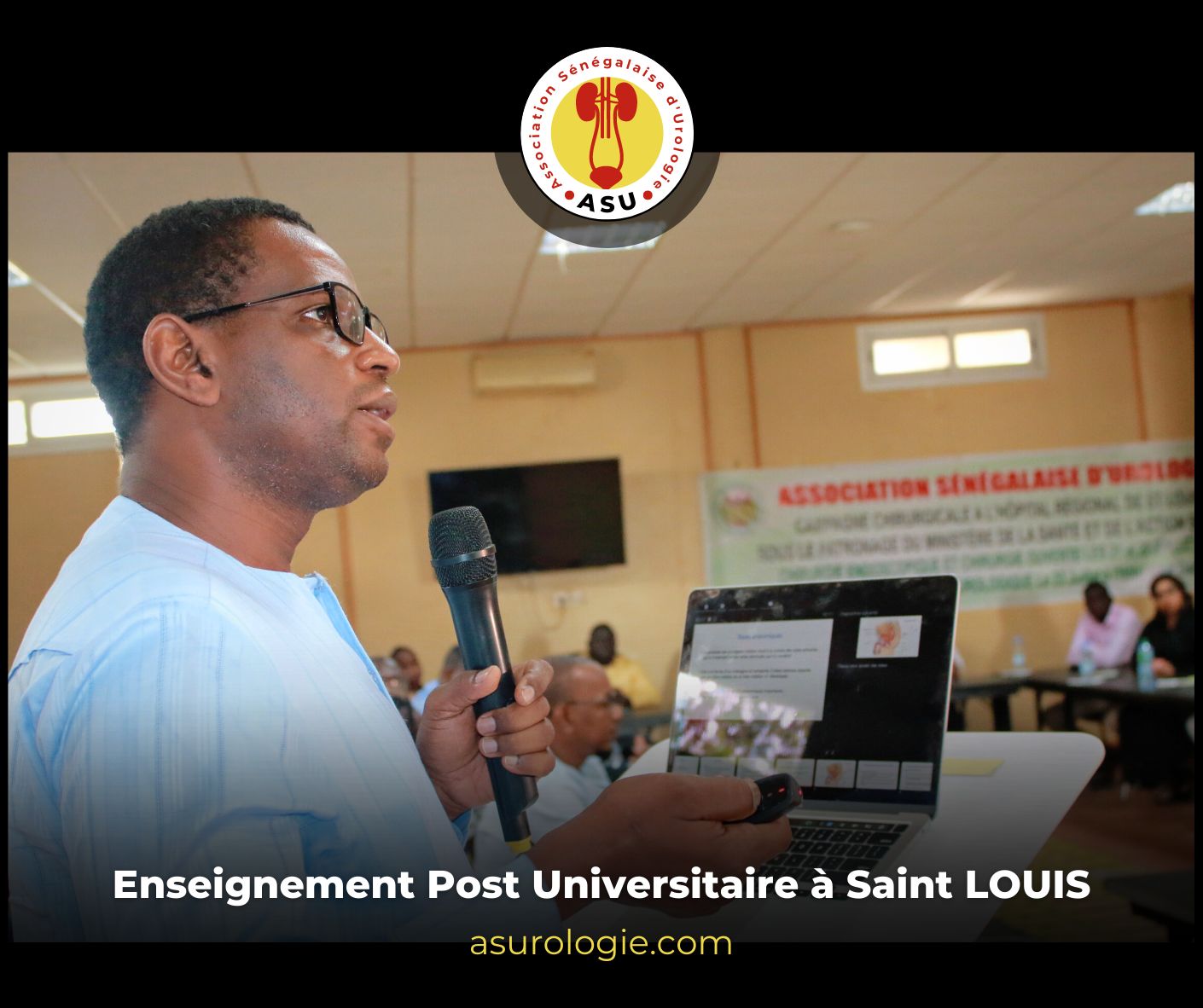« Research4Life has been with me through my entire career »

In 2009, Dr. Mohamed Jalloh was one of the 35 urologists active in Senegal. At the time, Senegal had more urologists than amost any other African country, one for every 215,000 men. But to put this in an international perspective, in the same year Denmark had one urologist for every 9,000 men – nearly 24 times as many as in Senegal.
In 2021, the number of urologists in Senegal almost doubled, and the country now has about one for every 120,000 men: in Denmark, there is one for every 7,300 men.
Like urologists in Denmark, and doctors throughout the world, to produce the best results Dr. Jalloh needs to consult the highest quality, most up-to-date scientific information. But while doctors in high-income countries can access most of the scientific resources they need, practitioners in Senegal don’t have the same opportunities.
We caught up with Dr. Jalloh to chat about his work and the role that Research4Life and Hinari – its collection of health resources managed by the World Health Organization – has had throughout his career, supporting his research and practice in Senegal and beyond.
Dr. Jalloh, you’re one of the about 70 urologists practicing in Senegal. Can you tell us about your career?
I started my career as Consultant Urologist at The Hôpital Général de Grand Yoff in Dakar. Since then, I did a series of Certificates and diplomas in the field of research and public health, which culminated in a Post Doctoral Scholoarship at the University of California San Francisco. I then became the Coordinator of the Department of Medical Information at the Hôpital Général de Grand Yoff – and I’m also Assistant Professor in Urology at University Cheikh Anta Diop de Dakar.
And I’m also responsible for training in research methodology, for which I make extensive use of Research4Life, in many Universities in Sengal.
How are you using Research4Life and Hinari to support your work?
I never stopped using Hinari since 2005, because information is key. I was fortunate to adopt Hinari early in my career, after an ITOCA workshop introduced me to it: and it’s been very helpful, as I needed to produce 8 papers to be promoted to senior lecturer.

Access to Hinari has played a key role in my research achievements. For example, I have published more than 100 peer reviewed articles in my field, which is unique for my academic degree. Hinari provides me all the options, ranging from updated knowledge to evidence-based medicine.
Within my practice, sometimes we have to perform surgical operations that are uncommon for us – and we can use Hinari resources to continue our medical education, and incorporate new techniques. And as at the clinics, our methods are always patient-centererd, we need to stay updated, whether in theory (e.g. with Cochrane Library) or in practice (e.g. with DuoDecim EBM Guidelines or FreeBooks for Doctors). It often happen that we refer documents to our patients for their information, especially with cancer patients: these include Plain Language Summaries of Systematic Review, or medical videos.
Any evaluation of the impact of Hinari will be underestimated. The best analogy of the impact of Hinari would be to restore the vision to someone who lost it.
What does a typical workday for your look like?
Very busy! I perform surgeries, receive patients and coach younger doctors. On some days, I do the morning rounds followed by lectures, on other days I would run my clinics, and on some other I would do surgical operations in the operating room. Within all these activities, I also embed training medical students and residents.
I’m also conducting ongoing research on prostate cancer. It’s funded by the US National Cancer Institute, within the framework of Men of African Descent Carcinoma of the Prostate (MADCaP) Consortium – which includes many Sub Saharan African Countries and partner researchers in the US. So far, we have started showing differences in the determinants of prostate cancer in our populations compared to other parts of the world, explaining the higher incidence and aggressiveness of prostate cancer in Black men.
I’m also an Investigator in a National Cancer Institute-funded program looking at training Investigator and Project managers across Africa, with a focus on cancer research.
What part does training colleagues and students have in your current role?
Hinari is central to training for medical students, nurses and residents. Formally, I have 4-5 cohorts of students who, as part of their curriculum in research methodolody, are trained to use research in PubMed and Hinari. And I take advantage of any occasion to train my peers both formally and informally, because with high-quality information you can build solid knowledge, practice and research.
How do you engage with the larger community in Senegal?

My engagement with the community includes serving as current Secretary General of the Pan African Urological Surgeon’s Association, and Secretary General of the Senegalese Association of Urologists.
I have also been involved in operating on women suffering from obstetric fistula. I personnally made many mission trips in remote areas in Senegal, as well as Chad and Burundi. We are fortunate to have the opportunity to alleviate the suffering of women who are largely marginalized: in most cases, fistula developed as a correlation of their poverty, and then this condition made them poorer and isolated. It’s so rewarding to see their smile and relief after a successful operation.
I’m proud of my constant career progression: it has been made possible by my dedication to always learn new tools, share my knowledge and network, and being involved in projects that are impactful and highly needed.
And Hinari was with me in all the steps of my career.
Discover Research4Life
Research4Life provides institutions in lower income countries with online access to more than 200,000 academic and professional peer-reviewed resources. Find out how to get access.
Already a user? Discover our Training Center, and find free resources to make the best use of Research4Life and improve your research skills.





